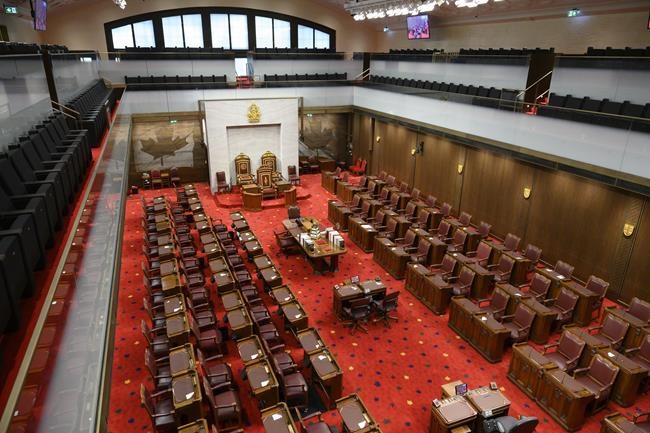Senate joins House of Commons in extending suspension until mid-June

OTTAWA - The Senate is staying closed for two more weeks, not planning to sit again until June 16.
The upper chamber is following the lead of the House of Commons, which doesn't have a scheduled sitting until the day after that, and only a handful before September.
Senate Speaker George Furey said he consulted all the leaders of the Senate's various factions and groups before concluding it's not in the public interest to convene as scheduled next week.
The Conservative leader in the Senate, Don Plett, is dissenting from the consensus.
"Prime Minister Trudeau always promises Canadians accountability and transparency. In reality, we're getting theatrics," he wrote in a statement.
"We cannot forget that our founding fathers intended a bicameral Parliament in order to thwart overreaching powers by the executive branch. As we face this ongoing COVID-19 crisis, we need to be mindful of one of our foremost duties as senators, which is to provide sober second thought, and act as an accountability mechanism for the executive."
Both the Senate and the Commons have committees focused on particular subjects meeting by video and telephone and those will continue.
The House of Commons has all its MPs meeting regularly through a special committee on COVID-19.
In that forum, MPs can question government ministers and debate issues but don't have the authority to pass laws or use many of the Commons' other usual privileges.
When the Liberals have needed to pass legislation on emergency COVID-19 measures, they've called special sittings and brought in bills whose passage has been negotiated in advance with opposition parties, skipping the usual scrutiny by committees.
Tories in the House have accused the Liberals, and the New Democrats who voted with them to set the limited calendar for the summer, of dodging scrutiny that governments submitted themselves to even during the Second World War.
This report by The Canadian Press was first published May 29, 2020.